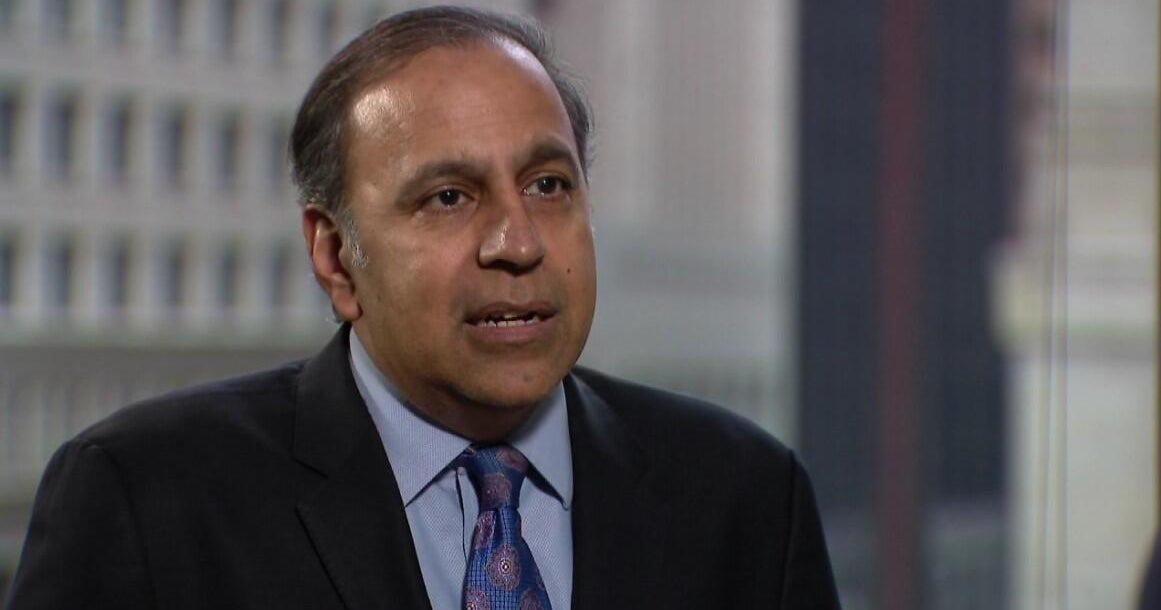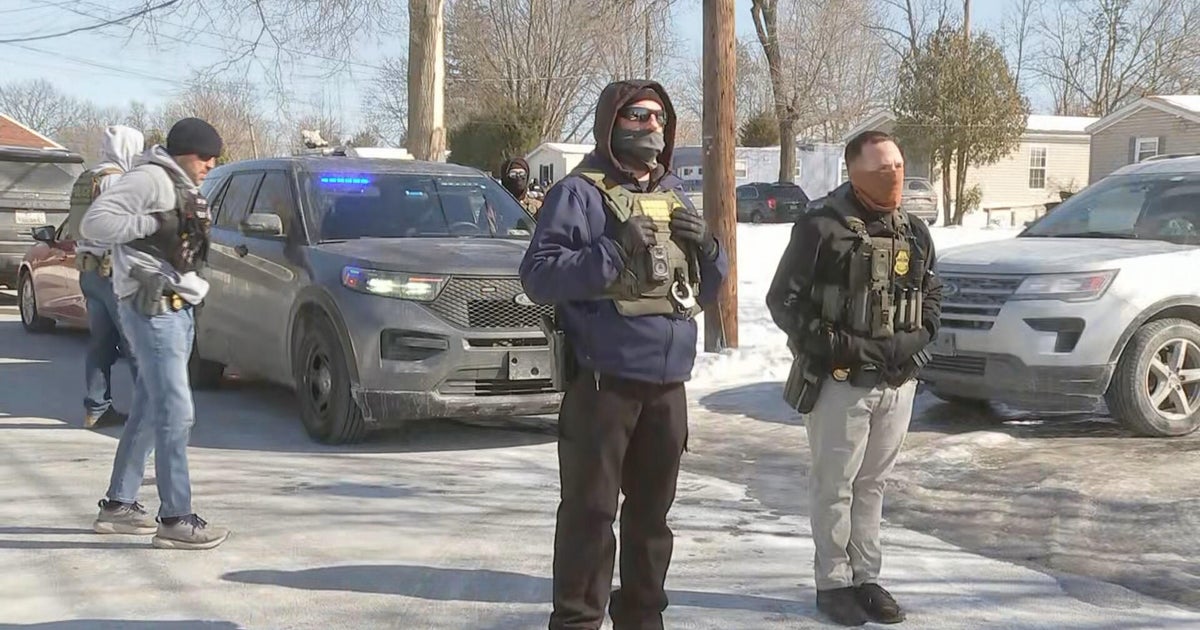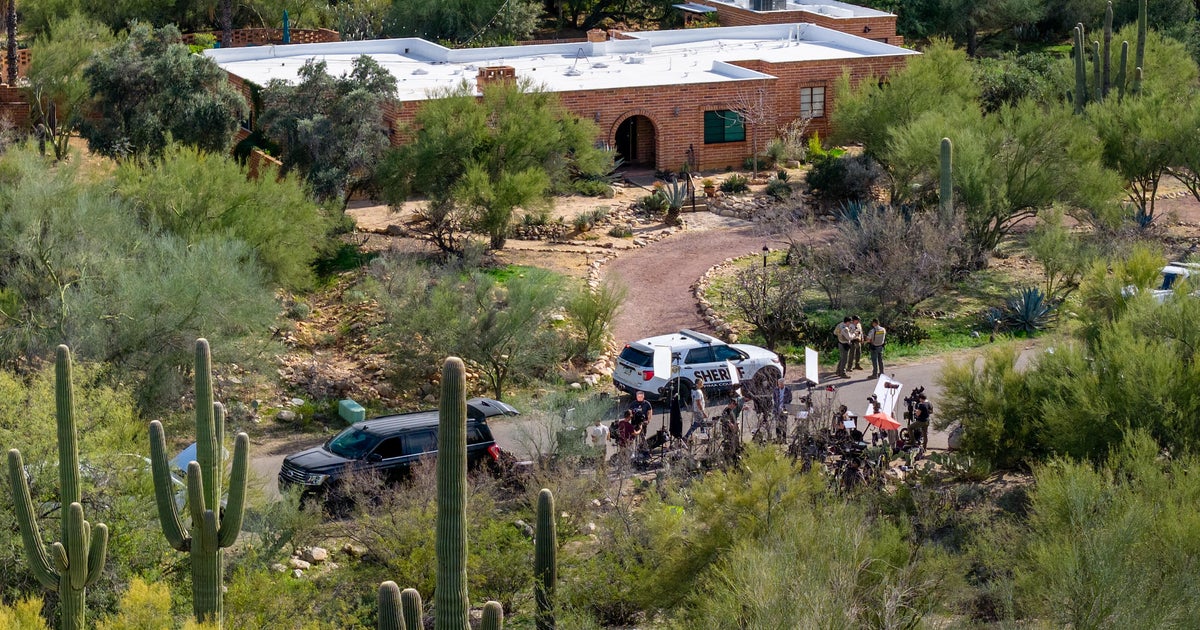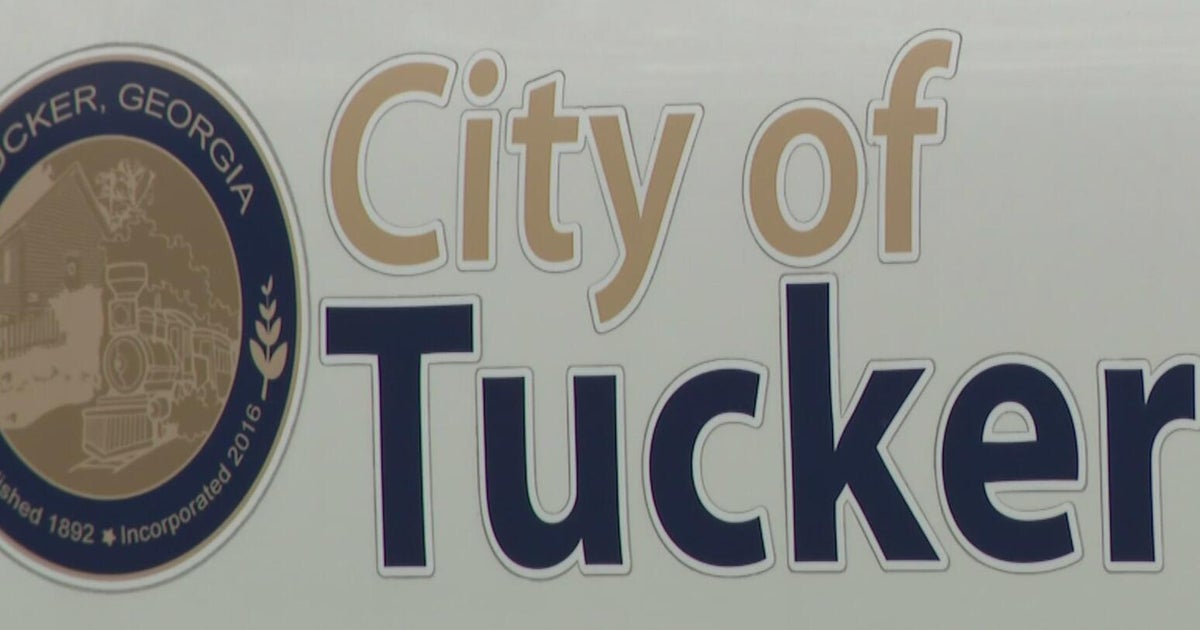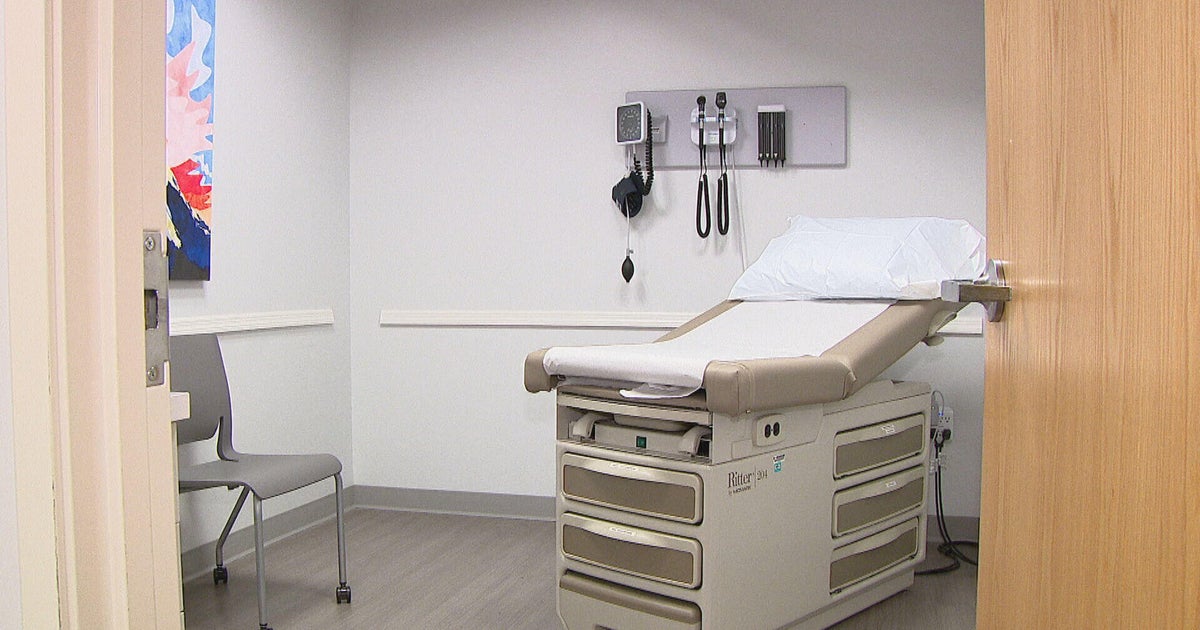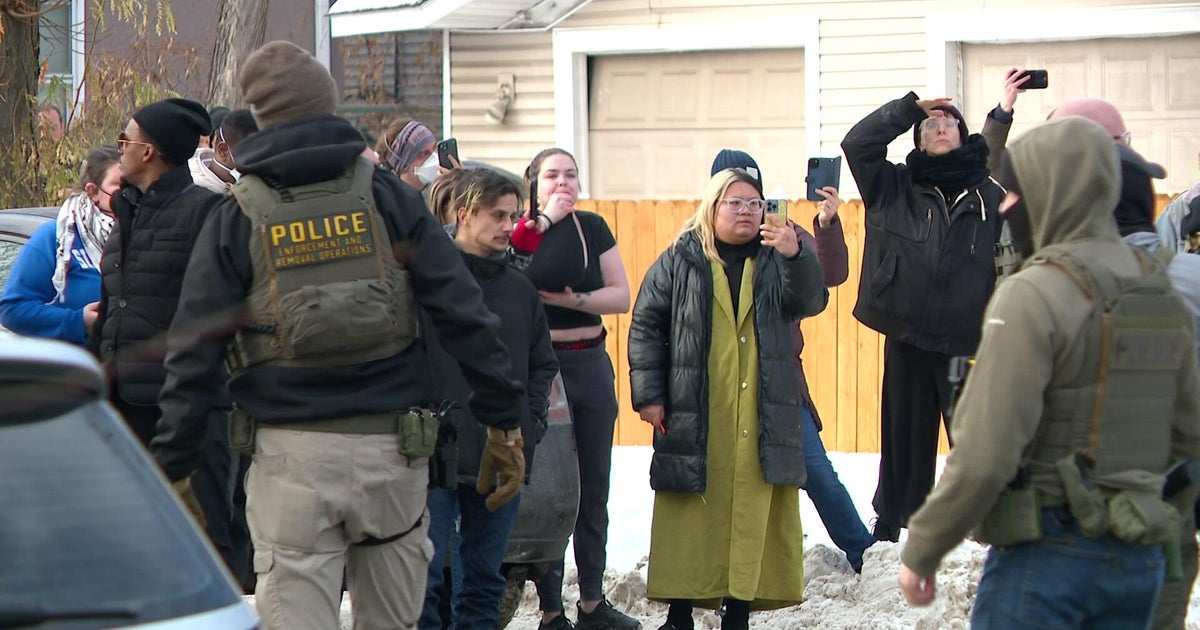CBS 2 Investigators: Hundreds Of COVID-19 Antibody Tests On The Market, But Are They Accurate?
By Dorothy Tucker and Michele Youngerman
CHICAGO (CBS) -- With cases of COVID-19 spiking again in several states, a lot of people want to know if they could be immune to the coronavirus, so they are paying for antibody tests. Hundreds of these have hit the market in just months. But are they accurate?
CBS 2 Investigator Dorothy Tucker put these tests to the test, looking for answers for people like Mark Thomas.
"Severe chest pain, nausea, headache," Thomas said as he described some of the symptoms, which are similar to COVID-19. "Sometimes chills at night."
He and his wife got sick In February, after a trip where they gathered with a hundred people at the AME Church in Montgomery, Alabama. After a few days the symptoms went away, but the nagging question did not. They want to know if they had the virus.
"We don't know," said Thomas. "So we wanted to test it to make sure and rule out that we had COVID."
Since they had not taken a nasal swab test for the virus, they decided to get an antibody test. They hoped it would tell them they were immune to the virus and protected from reinfection.
RELATED: What Are Antibody Tests And What Do They Mean For The Coronavirus Pandemic?
"I wanted a sense of relief so we would know how to proceed with our lives," said Thomas. "The results were negative, that I had no presence of COVID-19 and I did not have the antibody."
He was surprised.
"Very surprised," he said. "I thought for a fact that I had COVID-19. Absolutely. So I am still very skeptical of this test."
Thomas is among those who have raised questions about the accuracy of antibody tests, which is why CBS 2 decided to put these tests to the test. There have been some 250 tests on the market. Only 22 have been given Emergency Use Authorization by the U.S. Food and Drug Administration. We chose three based on costs and how long it would take to deliver results. Investigative Producer Michele Youngerman led our investigation. She had some of the symptoms of COVID-19.
"I was sick about the middle of March," said Youngerman. "I had headache, fever, and loss of smell."
She first tested the Vibrant test. This was on May 19th, at InOut Labs in Morton Grove. It cost $225. The result was negative for a recent infection. Negative for an older infection. No antibodies.
A week later, at ARCpoint Labs in Schaumburg, we tested the Rapid Hangzhou Biotest Biotech antibody test costing $75. Unlike the other tests, this was a finger prick blood draw. The result was positive for a recent infection. Negative for an older one. And positive for antibodies.
Remember, just a week before, Youngerman had tested negative for everything.
"Could I have caught COVID in that one-week period?" said Youngerman.
To make sure she had not caught the infection, that same day Youngerman went to a drive through testing site and took a throat swab. She was not infected.
The third test was done at Northwestern on June 15th. Insurance covered this Abbott Architect test. The result was negative for a recent infection. Positive for an older one, and positive for antibodies.
RELATED: FDA Commissioner Talks About Abbott Labs Rapid Test Issue | Abbott Labs Warns Of Possible False Negative From Rapid Tests For Coronavirus
So the results were mixed. We showed them to Dr. Philip Norris, an infectious disease expert from San Francisco, California.
"We have to take each of these results with some precaution," said Norris.
Especially the two positives, he says. The Abbott test was the only one that revealed the level of antibodies in the blood. In Youngerman's case the levels were low, and combined with the prior negative test, it led Norris to conclude this about the Abbott test, "I think most likely that's a false positive."
Norris also questioned the results of the Rapid Hangzhou Biotest Biotech test.
"The trouble with rapid tests is they tend to have higher background, so you're more likely to get a false positive," said Norris.
That means the test can pick up antibodies from another coronavirus, like the common cold.
That leaves the Vibrant test, which was negative, and questions about whether that was it correct.
"Well you're asking me, was Michele infected or not," said Norris. "And the answer is - maybe."
Maybe is not the answer anyone wants when they spend all that money.
"I do think it is buyer beware," said Norris.
Congressman Raja Krishnamoorthi agrees with Norris.
"The vast majority are junk tests," said Krishnamoorthi.
To say he has an issue with COVID-19 antibody tests is an understatement. He heads a Congressional subcommittee that investigated antibody tests.
"The FDA allowed a wild west to flourish where bad actors and bad tests were flooding the market," he said. "Dozens of them have been pulled from the market."
Forty-six were pulled, to be exact, in just three months.
"You could be talking about millions of people who took those tests," said the congressman.
Youngerman was one of them. Just one week after she took the Rapid Hangzhou Biotest Biotech test using a finger prick sample, the FDA said it should no longer be used with finger pricks. Had that same test been conducted using a venous blood draw, the FDA said it would have been acceptable. But no one contacted Youngerman to tell her the positive result she received was unreliable.
"In my opinion, the FDA should notify all those whose tests have been pulled from the market," said Krishnamoorthi. "I believe those people deserve their money back. We have to put these people out of business, at least in regard to these tests."
The problem, he says, is those getting false positive results may have a false sense of protection from getting infected.
"They might be in.. places where they're spreading the infection," he said.
The CBS 2 Investigators asked U.S. Food and Drug Administration (FDA) officials if they will require labs and doctors to notify people whose antibody tests were pulled. Will they require a warning that the test result may be inaccurate.
They responded by sharing language from an FDA letter to providers: "Evaluate, given the patient's clinical presentation and medical history, whether prior test results generated using these tests may have been incorrect, and whether the patient should be retested using an FDA-authorized test."
After receiving these three different results, our CBS 2 Investigators also shared them with Tim Thoelecke, president of InOut Labs. This is where Youngerman received a negative Vibrant test.
"It bothers me that it's not consistent with what I expected," said Thoelecke. "I'm going to run both tests again today at no charge and compare them side by side."
Thoelecke, at no cost, gave Youngerman another Vibrant test and an Abbott Architect test, too. For a second time, the Vibrant came back negative and the Abbott Architect came back positive for an older infection.
"I think there's some other variable in place," said Thoelecke. "It may well be that the labs had different cutoff levels."
He said he is talking with both Vibrant and Abbott to see why the results are different.
CBS 2 Investigator calls to those two companies were not returned. There was no response from the makers of the Rapid Hangzhou Biotest Biotech test either. The FDA allowed each of these tests to be used at that time, so the providers did nothing wrong.
It's not just consumers who are using these tests. Public health officials are, too, hoping to get a better understanding of the number of people actually infected by COVID-19.
On June 15, the Illinois Department of Public Health began COVID-19 antibody testing, "in congregate living environments and other community settings." A statement from them said, "This can help us evaluate past infections while we use the PCR testing to determine current infections. By using these tests jointly, a holistic picture of the relevant population can be revealed."
But for consumers who may change their behavior after getting one of these tests, Mark Thomas has a warning.
"You still have to be careful because there's no guarantee that test's accurate or not," said Thomas. "And you may think that you're having some relief, go out and be open and free but in reality could be passing on this contagious disease to another person."
Bottom line: test or no test you still need to follow safety guidelines. Wear a mask and social distance because even the most accurate test will not tell you if you are immune and protected from reinfection. That is still being studied.
For a list of antibody tests removed by the FDA, click here and scroll to "What Tests Should No Longer Be Distributed for COVID-19?"
U.S. Food and Drug Administration Response:
Every decision the FDA has made during the pandemic has been based on data and science while balancing the urgent need to make accurate tests widely available quickly with the rapidly changing demands of an evolving global pandemic. We continue to adapt based on real-world experience and data. In the case of antibody tests, as the FDA has authorized more antibody tests and validation data have become available, including through the capability at the National Institutes of Health (NIH) National Cancer Institute (NCI), the careful balancing of risks and benefits shifted from where it was in mid-March. Therefore, the FDA made an important change to the March 16 policy regarding the FDA review for commercial manufacturers' serology tests.
You can get a free antibody test when you donate blood. Here are a couple of ways you can sign up:
https://www.vitalant.org/Home.aspx (Dr. Philip Norris works with this organization)

